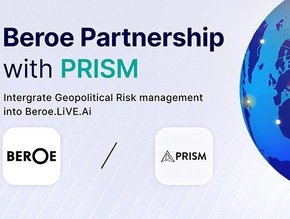What is the GSK Sustainable Procurement Programme?

The GSK Sustainable Procurement Programme was launched as part of work to achieve environmental goals to have a net zero impact on climate and a net positive impact on nature. The programme means GSK will require and support suppliers to take action on sustainability commitments and make improvements on emissions, energy, heat, transport, waste, water and biodiversity.
Company data indicates 40% of their carbon footprint comes from their supply chain, which also means their suppliers account for a significant proportion of GSK’s impact on biodiversity, water and waste. The result of this is that working with supply chain partners is essential if GSK is wanting to make significant progress towards their sustainability targets. GSK’s Sustainable Procurement Programme requires and supports suppliers to take action on carbon, power, heat, transport, water, waste, and sustainable, deforestation-free sourcing of materials.

Key Areas of Action
- Disclosing emissions
- Setting carbon reduction targets and delivery plans aligned to the 1.5 degree Science Based Targets initiative
- Switching to renewable power and heat
- Achieving water neutrality in water stressed areas
- Achieving 10% waste reduction
- Aligning to GSK’s responsible sourcing minimum standards
- Transport suppliers providing green transport solutions
"As a global biopharma company committed to getting ahead of disease together, we must work closer than ever with our supply chain and beyond to catalyse positive change across environmental systems and protect the health of the planet and people," said Lisa Martin, Chief Procurement Officer at GSK.

How does GSK support suppliers?
The company uses the programme to actively support their supply partners with education, and adopting environmental sustainability measures. The intention is supplier action will in turn help GSK achieve its environmental goals on climate and nature, as well as helping both GSK and its procurement network create long-term value and build more business resilience.
GSK Net Zero Strategy
The procurement strategy plays an important role in the wider sustainability plan for GSK who have set a pathway to net zero impact on climate. By 2030 the company is aiming to reduce carbon emissions by 80% with the remainder offset through investment in high-quality nature-based solutions, and by 2045, they aim to be at the
Science Based Target Initiative Net Zero Standard, with carbon emissions reduced by at least 90% and the remainder tackled through high-quality offsets.
- 2025 - 100% renewable electricity (scope 2)
- 2030 - 80% reduction in carbon emissions and investment in nature based solutions for the remaining 20% of footprint
- 2045 - Net zero emissions across all scopes in full value chain
Make sure you check out the latest edition of Procurement Magazine and also sign up to our global conference series - Procurement & Supply Chain 2024
**************
Procurement is a BizClik brand
- Sustainable Procurement Pledge: Shaping Global CollaborationSustainability
- Pfizer among new champions of Sustainable Procurement PledgeSustainable Sourcing
- How Toshiba is Helping its Suppliers Go Carbon NeutralSustainability
- Nestle Sourcing: Reducing Emissions Across its Value ChainSustainability






